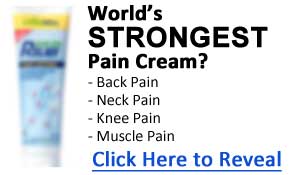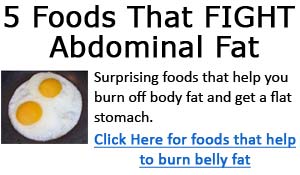The
role of nutrition in martial arts, police, military
personnel (Part 1)
By Will Brink, author of:
Bodybuilding Revealed
Muscle Gaining Diet, Training Routines by Charles Poliquin
& Bodybuilding Supplement Review
Sports Nutrition Information
For a considerable amount of time, nutrition has
not played a prominent role in the life of many martial
artists, police, and military personnel as a means
of improving performance. Top athletes are always
looking for an edge. Although the martial arts are
more of a way of life and a life style than a sport
per se, the needs of the martial artist are the same
as that of the elite athlete.
Mental aspects not withstanding
(i.e. mental awareness, strategy, cunning, etc.),
the need for speed, agility, strength, flexibility,
and the ability to recuperate from tough workouts
(and unforgiving sparing partners) is paramount to
the success of athletes and martial artists alike.
Police and military personnel can also have unique
requirements that require them to perform at peak
physical and or psychological levels.
Over the past decade our knowledge of sports nutrition
has evolved into a science that has swept the athletic
world and has been partially responsible for the ever
increasing numbers of athletes who are pushing the
envelope of human ability and performance. Although
a handful of the worlds top martial artists, police,
and elite military units have taken advantage of the
?utting edge? nutrition being used by top athletes,
the majority of these communities has not taken advantage
of the new science of sports nutrition.
The advantage of improving one's performance through
nutrition and correct supplementation is obvious for
the athlete, but what about the martial artist? Obviously
technique, form, and knowledge of one's chosen martial
art is essential to the mastery of that art, but what
if the person, regardless of skill level, becomes
a little faster, stronger, and able to resist and
repair from injuries and training better?
Will they not be an improved version of their former
self? Of course they will! Proper nutrition can make
the martial artist, as it has for so many of today?
top athletes, an improved and potentially more accomplished
practitioner of their art, plain and simple. If a
policeman is able to stay alert, has more endurance
or strength, etc., will he/she not have an added advantage
to the job? Of course.. The benefits to the soldier
are obvious. Bottom line? To not take advantage of
the science of nutrition and supplementation, is to
short change the martial artists, police, and military
personnel.
As a trainer for many athletes from various sports,
police, and ,military personnel, and the author of
numerous articles on sports nutrition and training,
I have come to a few general guidelines that should
be of considerable help and interest to the martial
artist, police, etc. who want to improve both health
and performance. Though nutrition is a complex topic,
I have devised a basic guide to the major and minor
nutrients that should be helpful to the martial artist,
police, and athlete alike who are trying to make food
and nutrient choices. Of course this guide is in no
way total or complete, and many individual differences
may apply, but as a basic guide to examining these
nutrients, it could give you the edge you have been
looking for.
Protein
Proteins are made up of amino acids which are the
structural units of the protein molecule. There are
approximately 20 amino acids. Eight of them are considered
?ssential?because the human body cannot make them
on its own - which is the definition of an essential
nutrient. Link a few amino acids together and you
get a peptide. Link a bunch of peptides together and
you get a protein. The shape of the individual amino
acids (and resulting proteins) is unique and highly
specific, so I won? go into great detail about it
here. Suffice it to say, proteins are an essential
part of virtually every function in our body from
the muscles, to certain hormones, to our immune system(s)
and a whole lot more. In particular, the amino acids
known as the ?ranched chain? amino acids (leucine,
isoleucine, and valine) and the amino acid L-glutamine
are of particular interest to active people as they
are anti-catabolic (muscle sparing) and immune enhancing,
to name only a few functions and benefits of these
particular amino acids.
Though the RDA for protein is generally sufficient
for couch potatoes (with some debate) the majority
of athletes and/or highly active people will benefit
from higher intakes of high quality proteins. Proteins
with the highest biological value (BV) are the proteins
that should constitute the majority of the active
person? diet, as they are superior for maintaining
positive nitrogen balance, reducing recuperation time
from workouts, improving immune function, etc. Whey
protein concentrate (WPC) and isolates (WPI) have
the highest BV of any protein, is almost 50% branched
chain amino acids, and is high in L-glutamine, which
is why I recommend several servings a day of WPC/WPI
to all the athletes/martial artists/police I work
with.
There are several brands of WPC/WPI on the market.
Other high quality proteins such as skinless chicken,
fish, eggs, soy, and lean red meats, have relatively
high BV values and are good proteins. Another point
that is important to know, the higher quality the
protein, the less the person has to eat and this allows
the person to keep total calories lower by sticking
to these high BV proteins.
For a person who is active in the martial arts, has
a busy job, and probably does some weight lifting
and/or aerobics, an intake of .7 - .8 grams of protein
per pound of lean body weight is what I have generally
recommended. For high level bodybuilders and competitive
distance athletes, the protein intake will be higher,
approximately 1g of protein per lb /bodyweight being
the most common. In certain situations, amino acid
supplementation is useful, but most people will have
no problem getting what they need by eating plenty
of high quality protein foods. Low grade, high fat,
preservative loaded, protein foods such as luncheon
meats, hot dogs, etc., should be avoided for obvious
reasons.
Carbohydrates
Carbohydrates are made primarily of carbon, hydrogen,
and oxygen atoms that cycle into a ring. They can
be simple or complex depending on the number of rings
that are hooked together and the way the carbohydrate
effects blood sugar (1). Though the rings can be slightly
different in shape, their common theme is the ring
structure. Similar to amino acids that make up proteins,
when you link the simple units (the sugars) together
you get carbohydrates with different properties. As
most people know, carbohydrates are a primary source
of energy for the body. The best type of carbohydrates
to eat are those that are high in fiber, vitamins,
and minerals.
Though foods such as pasta, breads, and white rice
are considered ?omplex?they are highly processed foods,
totally inadequate in fiber, vitamins, and minerals
and should not make up a high percentage of a persons
carbohydrate intake. Though these foods are often
fortified with certain vitamins, in my opinion this
does not truly replace what is lost during processing,
not to mention the many nutrients that are not replaced.
Americans are notoriously low eaters of fiber, and
heavily processed foods mentioned above do nothing
to correct this deficit. High fiber carbohydrate foods
such as brown rice, beans, lentils, oatmeal, sweet
potatoes, and many others, are the preferred carbohydrate
foods for health, performance, steady blood sugar
levels, and reduced bodyfat levels.
Though the high carbohydrate/low fat diet is all
the rage these days, it has not been in my experience
the optimal diet for the many athletes, martial artists,
and ?ormal?people I have worked with (see fats below).
Data continues to support the fact that high carb
low fat diets are not optimal for either health for
weight loss. Eating too much of anything, including
carbohydrates, will make one fat (too bad the makers
of non-fat foods fail to tell you this) and cause
a host of other ills I don't have the space here to
cover. There are many researchers, books, and studies
using both animals and humans that seriously questions
the high carbohydrate/low fat diet as the optimal
diet for health and performance. Two grams per pound
of lean bodyweight of carbohydrates is more than sufficient
to fuel the energy needs of most athletes if other
aspects of their diet is adequate (i.e. correct use
and amounts of certain fats and proteins). And, as
mentioned previously, the source of those carbohydrates
is of paramount importance.
Fats
The very word sends a shiver down the back of the
leanest person. There is not a more misunderstood
nutrient in all of nutrition than fats. Many people
know there are big differences in how various carbohydrates
effect the body and some people even know that different
proteins have different properties, but ? fat is a
fat, no??is what the majority of people would say
if you asked them about this much maligned nutrient.
Fats have just as many biochemical differences in
the human body as do carbohydrates and proteins, and
thus have just as many different effects on the body
that range from very good to very bad. It really depends
on the type and amount of fat(s) we eat(2). Americans
tend to get their dietary fats from saturated fats,
rancid fats, and highly processed fats ( which contain
by products such as trans fatty acids) , thus giving
fats a bad name.
As mentioned earlier, an essential nutrient is anything
the human body cannot manufacture on its own and must
be obtained from the diet, or the person will become
sick and/or perish if the nutritional deficit is not
corrected. We know there are a multitude of vitamins
and minerals, eight amino acids, and two types of
fats that are considered essential nutrients for life
itself to continue. You should be aware that there
is no such thing as an essential carbohydrate, but
that's a whole other story. The two fats that are
known to be essential to health are Linoleic acid
(LA) which is an Omega-6 fatty acid and Alpha-linolenic
acid (LNA) which is an Omega-3 fatty acid. Both of
these fats can be found in various foods that have
not been heavily processed.
These two fats are highly sensitive and reactive
to heat, light, and oxygen (i.e. they go bad quickly)
, and are totally ruined or lost during the processing
of our foods. The reason poly -unsaturated vegetable
oils that line the shelves of most super markets can
sit there for years on end is because they have been
heated, deodorized, and generally processed to the
point that they are the nutritional equivalent of
white bread and table sugar. I recommend people avoid
those oils.
Because of all the fat bashing by the popular media
and health professionals who should know better, most
people have come away thinking that all fat is bad
and serves no other purpose than to make our hips
and stomach wider while ruining our health. Nothing
could be further from the truth. The membrane that
surrounds every single cell in your body, the sheath
around nerves, various hormones, prostaglandins, and
countless other parts of the body (especially the
brain) depend on the dietary intake of the right fats.
The importance of the essential fatty acids for health
and performance cannot be understated. It is true
that certain fats, such as, saturated fats, rancid
fats, and trans fatty acids (found in margarine, Crisco,
and other products) , can cause numerous health problems
from heart disease to cancer and insulin resistance,
to name only a few ills of a diet high in the wrong
types of fat. However, the essential fatty acids (especially
the Omega-3 fatty acids) are anti-lipolytic (stop
fat storage), anti-catabolic (stop the break down
of muscle tissue), increase metabolic rate and beta
oxidation (burn calories/increase fat burning), improve
insulin sensitivity, reduce the chances of heart diseases,
and a whole lot more (3).
Though early research told us that we need a bit
more LA (the Omega-6 fatty acid) than LNA (the Omega-3
fatty acid) in our diet, we find in practice that
a diet containing higher amounts of Omega-3 fatty
acids (LNA) gets the best results in health, bodyfat
levels, and performance. The richest source of the
Omega-3 fatty acid LNA is Flax oil, which also contains
a small amount of the Omega-6 oil LA (4). Flax oil
can be found in the refrigerated section of any good
health food store and is derived from the careful
processing of flax seeds (5). As a nutritional consultant
to various athletes, I have used flax oil with many
of the country's top bodybuilders (a group of athletes
notoriously fearful of eating fat) to reduce their
bodyfat levels and improve their performance and health.
Two to three tablespoons a day over a salad, taken
straight, or in a protein drink does the trick (6).
Another major source of Omega-3 fatty acids can be
found in deep water cold fish such as sardines, mackerel,
and salmon (7), and I recommend that people eat two
to three servings of these fish per week. Good sources
of LA are unprocessed vegetable oils such as safflower,
sunflower, sesame, and many other oils found in health
food stores.
Fats to avoid are highly processed vegetable oils
and other processed vegetable products (such as margarine),
rancid fats, and to a lesser degree, saturated fats.
The key to health and performance is a proper balance
of essential fatty acids (LNA and LA), mono unsaturated
oils (found in olive oil, avocados, etc.), and small
amounts of saturated fats found in lean meats and
other sources combined with the right carbohydrates
and proteins.
Continue
to Sports Nutrition Information part 2
>> Click here for Will Brink's Bodybuilding Revealed
>> Click here for Will's Fat Loss Revealed



